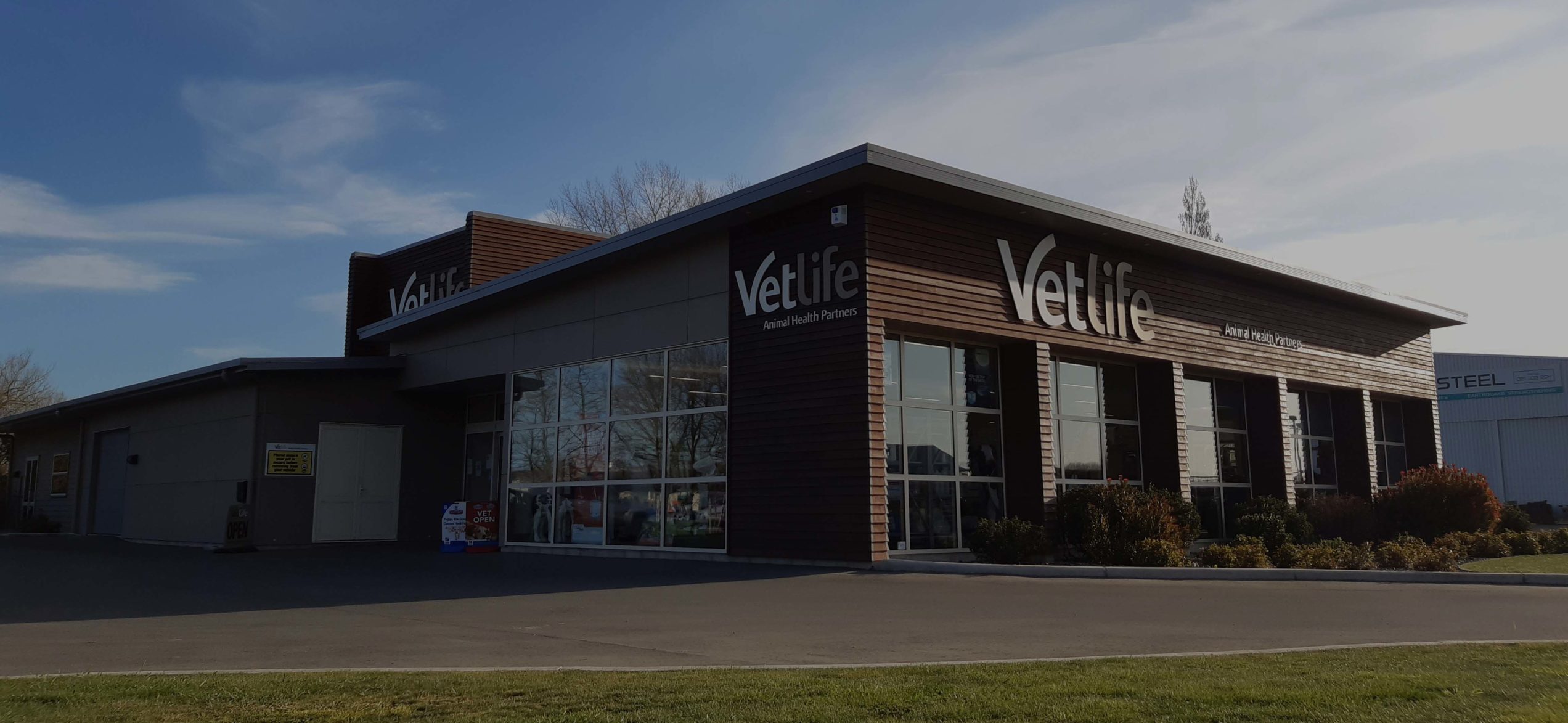
Vetlife is a locally owned and operated veterinary business with clinics serving Canterbury, MacKenzie, Otago, Tasman/Nelson and Marlborough.
We have 24 clinics based throughout the South Island. Each clinic employs professionals with a variety of skills and expertise. Select your nearest town to view more details. Please note our clinics are closed on public holidays.
Monday to Friday: 8am – 5pm
Monday to Friday: 8am – 6pm
Saturday: 9am – 12pm
Monday to Friday: 8am – 6pm
Saturday: 9am – 12pm
Monday to Friday: 8am – 5pm
Monday to Friday: 8am – 5.30pm
Saturday: 9am – 1pm.
Monday to Friday: 8am – 5.30pm
Monday to Friday: 8am – 5pm
Monday to Friday: 8am – 5pm
Monday to Friday: 8am – 5pm
Monday to Friday: 8.30am – 2.30pm
Monday to Friday: 8.30am – 5.30pm
Saturday & Sunday: Closed
Public Holidays: Hours may vary
Book online through our online portal
Monday to Friday: 8am – 5pm
Monday – Friday: 8.30am – 5.30pm
Saturday: 9am – 2pm
Sunday: Closed. (Vetlife Richmond Clinic is open 10am – 2pm)
Public Holidays: Hours may vary
Book online through our online portal
Monday to Friday: 9am – 5pm
Monday to Friday: 8am – 7pm
Saturday: 9am – 2pm.
All consultations by appointment only.
Monday to Friday: 8am – 5.30pm
Saturday: 9am – 12pm
Monday, Tuesday, Thursday, Friday: 8am – 5pm (consults 9-11:30am and 2-3.30pm)
Wednesday: 8am – 7pm (consults 1-6:30pm).
Monday to Friday: 8am to 5pm
Monday to Friday: 8.30am – 5pm
Monday to Friday: 8am – 5pm
Monday – Friday: 8am – 5.30pm
Saturday: 9am – 4pm
Sunday: 10am – 2pm
Public Holidays: Hours may vary
Book online through our online portal
Monday to Friday: 8am – 5.30pm
Saturday: 9am – 12pm
Monday to Friday: 8am – 6pm
Saturday: 9am – 12pm
Monday to Friday: 8am – 5pm
Monday to Friday: 8am – 5pm
Monday to Friday: 8am – 6pm
Saturday: 9.30am – 1pm
“Always take great care of our dog. Know her and us well and always caring. Listen and understand, empathetic, don’t just go through the motions. Our dog is a 'difficult' patient but they always have patience with her. Really special clinic. ”